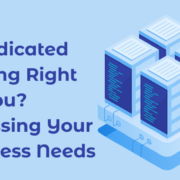8 Tips For Choosing The Best SaaS Management Platform in 2023
SaaS apps cost an average of $2,623 per employee and 19% of a company’s total spending, and many companies adopt many SaaS products for several purposes. Hence they will need a central base for proper management.
Since companies have a wide range of software management platforms to select from, they will need to find the platform that suits their operational needs. Also, the management tool ensures they maximize all their applications by controlling them from a central base.
Choosing the best management platform for your company is a complex process since many options are available. However, there are critical factors to consider when selecting a SaaS management platform in 2023. 2023 presents many SaaS management technologies to revolutionize how businesses manage their SaaS products.
In this article, we’ll share crucial tips to help companies select the best SaaS platform.
What is a SaaS management platform
A SaaS management platform is a cloud-based solution that controls companies’ applications in a central outlet. It’s like a base that organizes all the Software and subscriptions that businesses use for their operation.
SaaS management platforms offer keys that help companies monitor their subscriptions and tools to boost the team’s effectiveness. Plus, it provides a central platform for companies to organize and improve their SaaS product usage.
How do SaaS management platforms affect businesses?

SaaS platforms provide various instruments and services that help companies work more efficiently. For example, they offer customer relationship management tools, project management software, and financial management systems.
What is contract management? It is a process that involves the creation, negotiation, approval, execution, and ongoing management of contracts, and it is becoming increasingly important for businesses of all sizes.
Here are a few ways that SaaS management platforms affect businesses:
1. Effective employee retention strategy
Replacing a company’s staff is generally more expensive than retaining them. While many companies struggle to retain talent, innovative organizations are adopting SaaS solutions.
With effective employee retention strategies businesses can reduce their talent rate. Utilizing SaaS tools for turnover prediction and analysis will help brands get the information they need to reduce their staff turnover rate. Hence company leaders are effective in building a conducive work environment for employees.
2. Reward management
SaaS management platforms offer an excellent approach to reward management. Reward management methods vary; however, it’s crucial to maintain employee engagement. Rewards are a perfect way for employers to give back to their staff and increase their morale.
The best reward management approach presents teams with several chances to improve their skills and contributions within the company. Also, when a company recognizes and applauds best-performing teams with a better work environment and working conditions, they are confident of increasing its overall employee performance.
3. Schedule planning: utilizing event staff scheduling software for efficient collaboration
SaaS tools like event staff scheduling software streamline collaboration within organizations. These tools help brands share event schedules and communicate instantly with teammates in different locations. Plus, the Software is an event staff application that offers time tracking and payment processing.
In addition, event planning agencies can use staff scheduling software to streamline resource management, offering centralized scheduling, real-time updates, and cost tracking. It enhances efficiency, transparency, and client satisfaction while providing valuable post-event insights for continuous improvement.
The solution simplifies event programs allowing everyone to identify duties and work times. In addition, SaaS platforms make event scheduling easy to navigate for team leaders. It provides them with all the information on employee availability, allowing them to be flexible with creating schedules that suit each team member.
8 tips for choosing a SaaS management platform
Let’s see some tips for choosing the best SaaS management platform in 2023:
1. Research the latest trends

Before adopting a SaaS management platform, you need to research the latest trends in the industry. What are the most popular SaaS solutions? What new features and updates have been released? Understanding the market will help you pick the platform with the specifications that suit your method of operation.
2. Consider your business’s needs
Every business is different and has unique needs. Hence, write the features your business needs to function optimally for optimum performance and select the SaaS platform that provides those features.
Identifying the needs of your business will ensure you simplify the selection process.
3. Evaluate the vendor
Before you decide on a particular SaaS platform, take some time to evaluate the vendor. Look at their customer service, technical support, and pricing models to confirm they meet your needs.
4. Test the platform
Aim to test the platform before subscribing to the service of any vendor. Testing the platform will help you understand if it’s the right fit for your business. Try out the different features and see how the platform works with your business workflow.
5. Look for a long-term solution
When choosing a SaaS management platform, look out for a solution that will be sufficient in the long run. The best SaaS CRM will keep growing and evolving with your business. Hence, the SaaS platform that adopts changes as technology advances is a perfect choice.
6. Consider security
Security is a top priority when selecting a SaaS management platform. Unfortunately, about 43% of cyber-attacks are targeted at small businesses, and only 14% are equipped to defend themselves.
Generally, all the applications companies utilize are accessible via their SaaS management solution. While this is necessary to keep track of things, it’s also risky as it increases the possibility of security breaches. Thus, you will need a distinct SaaS platform that controls access for the staff while managing and monitoring SaaS application security.
Aim to choose a platform that complies with the latest security standards and provides robust authentication and authorization features.
7. Check for uptime and performance
Confirming that the SaaS management platform you choose offers reliable uptime and performance is also necessary. You’ll want to review the platform’s performance metrics and look for reports of any outages or service interruptions.
8. Ensure there are backups and disaster recovery plans
Nearly 1,243 security breaches were discovered in 2021. Hence, your SaaS product must prevent security lapses and cyber-attacks –a disaster recovery strategy must be set in order to avoid data loss of any sort. Therefore, the company needs to understand the kind of incident management and disaster recovery strategies the SaaS security provider offers.
Asides understanding the capabilities of your SaaS tool, you also need to factor the level of accountability your business would accept in the event of a data leak. So from the outset, it’s crucial to define your company’s and the software’s functions. Plus, you need to check the backup frequency you need, the suitable recovery type, and the amount of downtime you will bear.
Frequently asked questions on SaaS management

As SaaS (Software as a Service) platforms become popular for businesses, some companies have questions about how they work and the advantages they offer. Here, we will provide an overview of the most common questions and answers to understand the potential of SaaS platforms better.
-
What is SaaS
SaaS spells Software as a Service, and it is a cloud-based model for software delivery. Instead of purchasing a software license, SaaS allows companies to access software applications through the internet. Hence, companies don’t have to install and maintain Software on their computers. Instead, the Software is hosted and managed by the provider and accessed by the user through the internet.
-
What are the benefits of using a SaaS platform
The primary benefit of SaaS is that it reduces costs and lowers the time and funds a company spends on software development and maintenance. It also helps to enhance the scalability of businesses since they can quickly add or remove users as needed. Also, SaaS enables companies to smoothly collaborate and share data between teams, regardless of the location. Ultimately, SaaS is secure and reliable, with high-grade security measures ensuring data privacy and integrity.
-
What types of services are possible with SaaS
SaaS provides various services, including web-based applications, customer relationship management (CRM) software, enterprise resource planning (ERP) software, and data analytics software. Plus, SaaS provides access to business applications such as accounting, human resources, and project management.
-
Are there any drawbacks to SaaS
One downside of SaaS is that companies need to be online and connected to the internet to use the Software. Also, it’s tough to integrate SaaS with existing systems, so companies need to understand this when deciding which Software to use. Finally, some SaaS providers may require long-term contracts, so businesses should assess their needs carefully before signing up.
Pick the best SaaS management platform for your business
Setting up SaaS gets tricky as businesses upgrade their Software and subscription. Hence, they must adopt a management system for seamless control and organization of their subscription.
These tips guide companies using SaaS platforms to manage their applications and achieve optimum results. With the right SaaS solution, business leaders will ensure they get the best out of their software applications.



